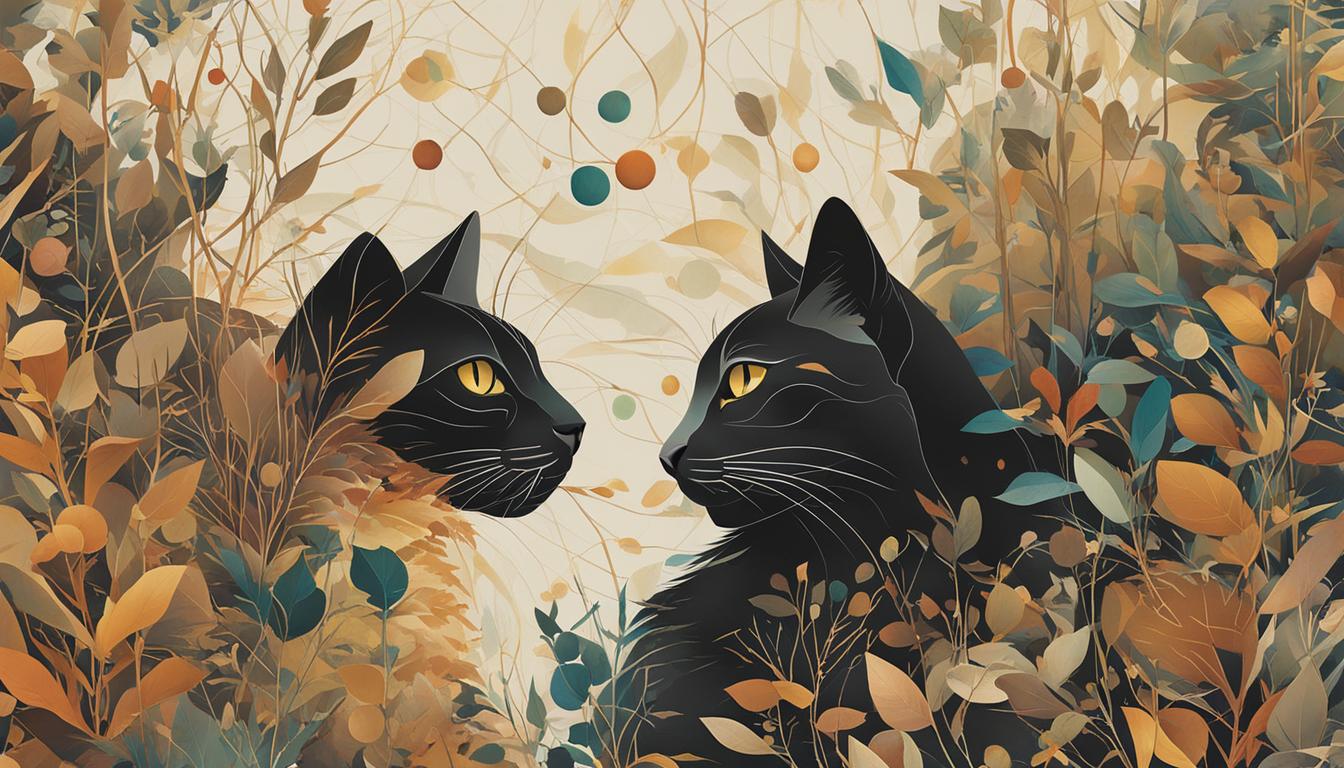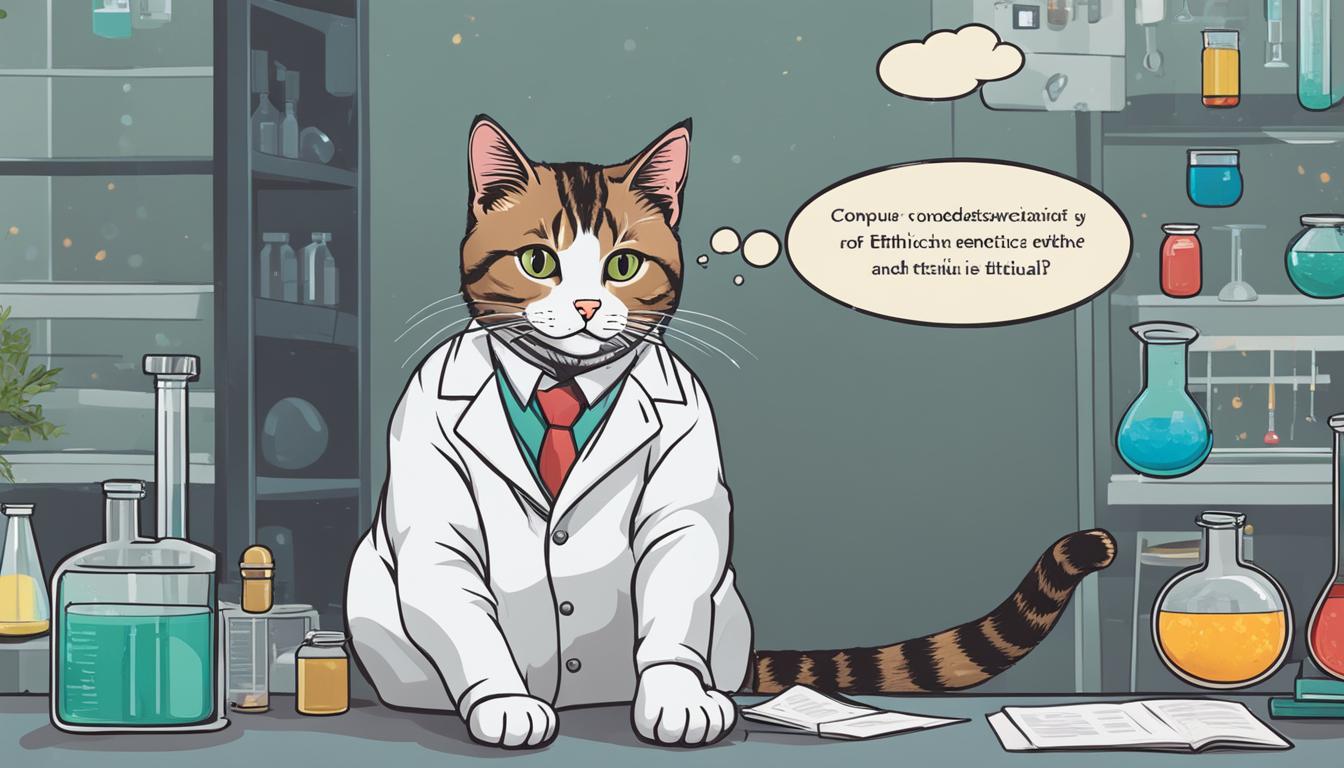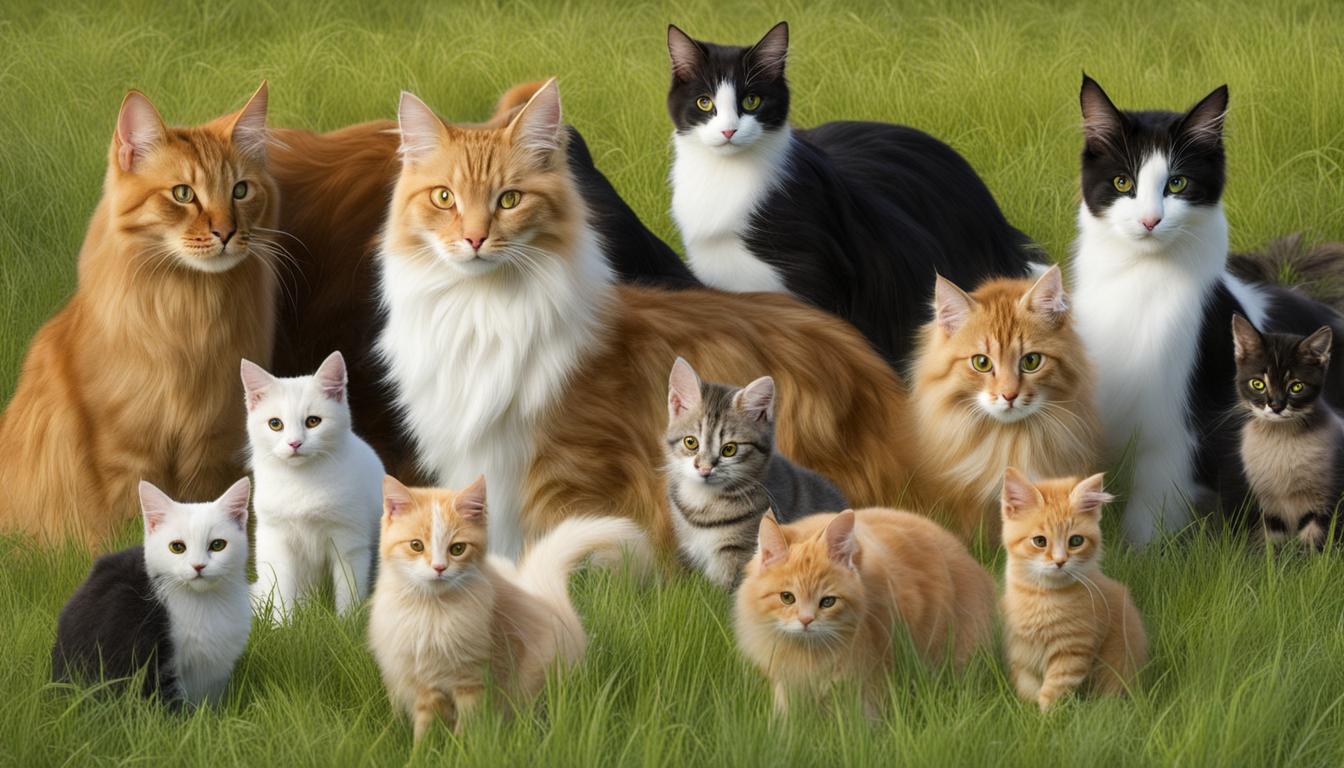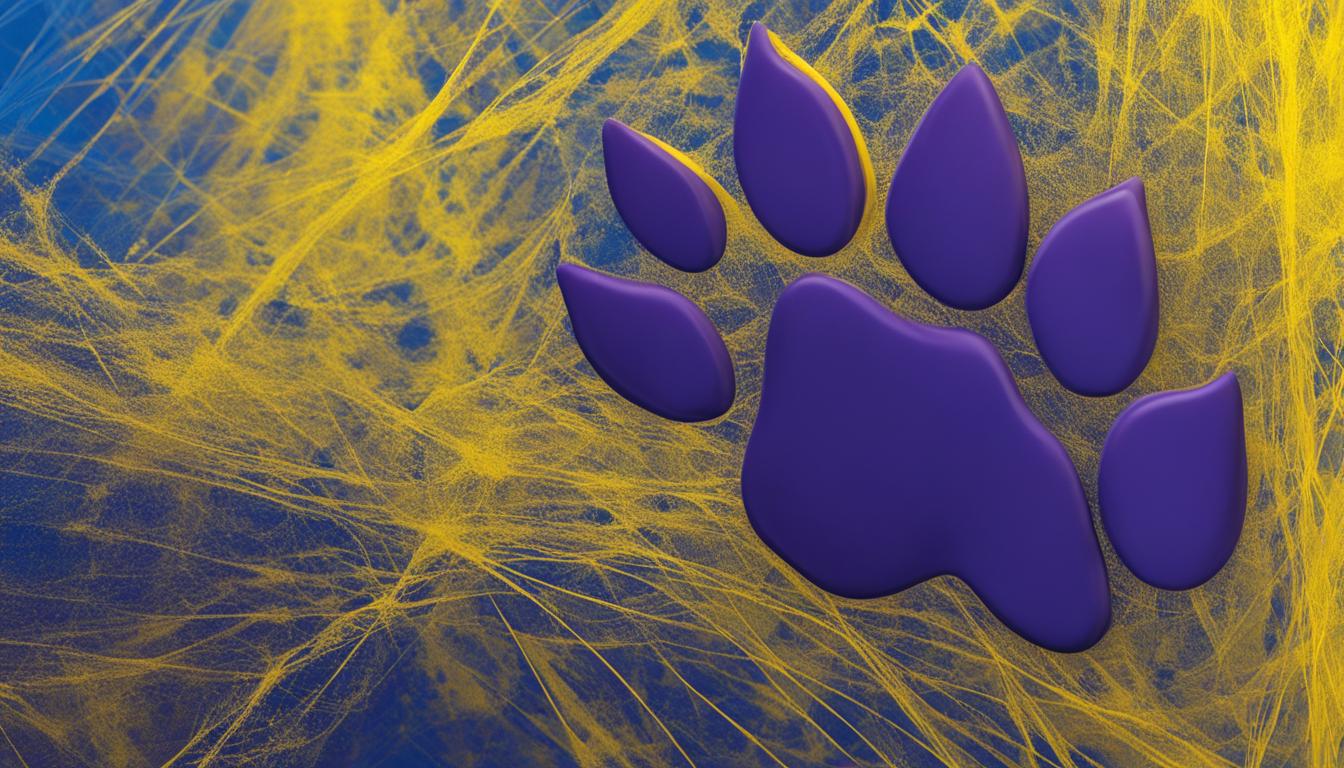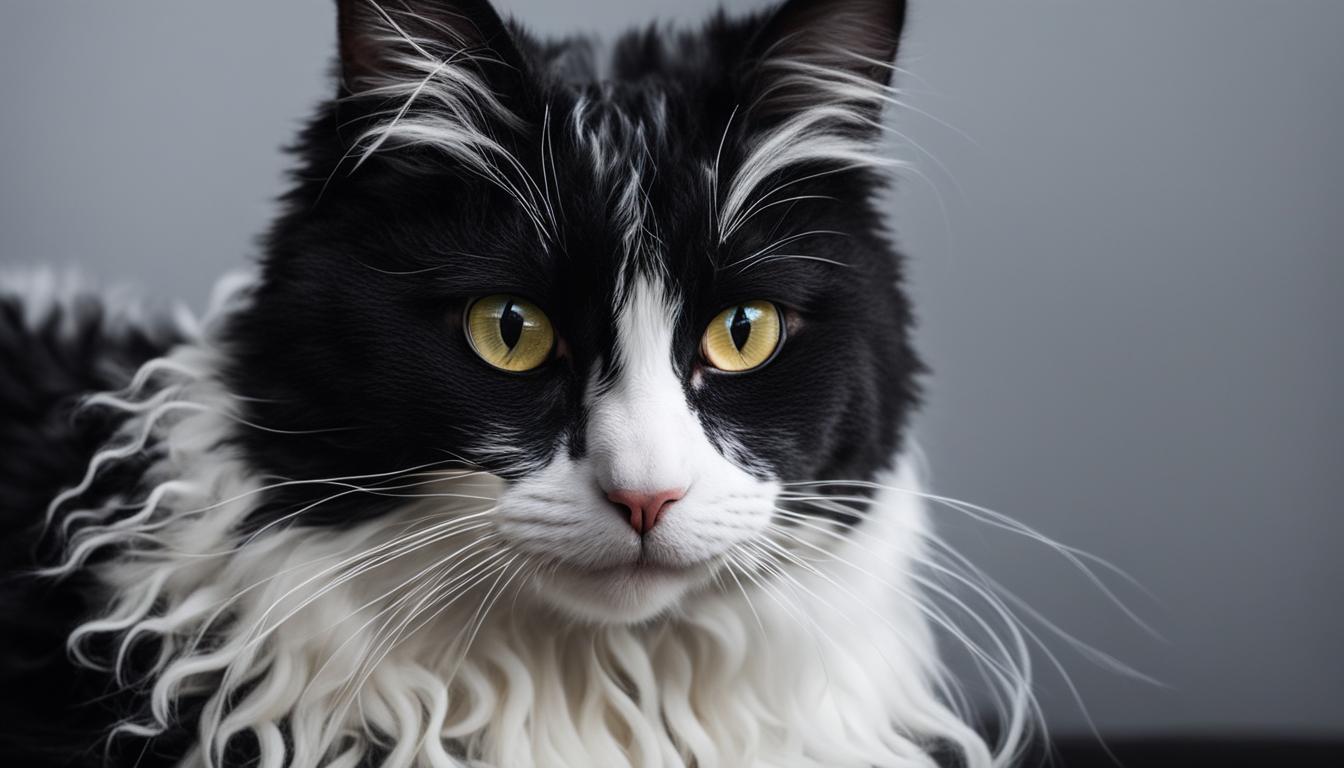As a curious cat lover, I’ve always been fascinated by the secrets hidden within a feline’s DNA. We often marvel at how some cats seem to defy the odds, living long and healthy lives, while others succumb to age-related diseases far too soon. It turns out that genetics play a crucial role in the aging process and overall longevity of our furry companions.
Genetic research has uncovered some intriguing findings about feline aging. Did you know that cats and humans share approximately 90.2% of their DNA? This genetic similarity opens up thrilling possibilities for cross-species insights into aging and longevity.
Key Takeaways:
- Genetic factors significantly impact the lifespan and aging process of cats.
- Studies are underway to identify genetic markers associated with longer feline lifespan.
- Cat breeds are being analyzed to determine if certain breeds have genetic predispositions for longevity.
- Understanding genetic influences on cat lifespan can help improve feline health and identify potential therapeutic targets for age-related diseases in humans.
- Individualized healthcare strategies tailored to a cat’s genetic influences are crucial for optimal senior cat care.
The Impact of Genetic Factors on Cat Longevity
Genetics play a significant role in the lifespan and aging process of cats. Ongoing studies, such as Basepaws’ longevity research partnership with Project 25, are focused on understanding the genetic factors that contribute to feline longevity. By unraveling the secrets hidden in feline DNA, researchers aim to identify genetic markers associated with longer lifespan and improved quality of life in senior cats.
Cat breeds are also being analyzed to determine if certain breeds have genetic predispositions for longevity. This research involves comparing the genetic profiles of cats from different breeds and examining their lifespans to identify any correlations. By understanding the genetic factors that influence cat longevity, veterinarians and breeders can make informed decisions to enhance feline health and increase their life expectancy.
To depict the findings and observations related to cat breeds and their longevity, let’s take a look at the following table:
| Breed | Average Lifespan (Years) |
|---|---|
| Maine Coon | 12-15 |
| Siamese | 10-12 |
| Persian | 12-16 |
| Russian Blue | 15-20 |
“Genetic research on cat aging and longevity could provide valuable insights into human aging studies. Cats share a significant amount of DNA similarity with humans, making them an intriguing model for understanding the genetic basis of aging. By identifying genetic variants associated with feline longevity, researchers may also discover potential therapeutic targets for age-related diseases in humans.”
– Dr. Amanda Johnson, Feline Genetics Researcher
Understanding the genetic basis of cat lifespan and heredity can pave the way for innovative approaches to feline healthcare. By identifying specific genes and genetic variations associated with longevity, researchers can develop targeted interventions, early detection methods, and preventative strategies to improve the overall quality of life for cats.
Exploring the Connection Between Cats and Humans in Genetics
Cats and humans, despite their apparent differences, share a surprising genetic similarity. Approximately 90.2% of a cat’s DNA is similar to that of a human, making them genetically closer to us than dogs. This unique genetic closeness presents an exciting opportunity for cross-species insights into aging and longevity.
The ongoing genetic research conducted on feline aging and longevity has the potential to not only benefit our feline companions but also impact human aging studies. By studying the genetic variants associated with feline longevity, researchers may uncover valuable insights into age-related diseases in humans and identify potential therapeutic targets. This research can pave the way for the development of innovative treatments and interventions that improve the health and quality of life for both cats and humans.
“The genetic research conducted on feline aging and longevity could have important implications for human aging studies.”
Understanding the genetic basis of feline life expectancy can offer valuable insights into the aging process and inform human therapeutics. By comparing the mutation rates and spectra between cats and humans, scientists can gain a deeper understanding of the evolutionary mechanisms underlying aging and identify common pathways and genetic factors that influence lifespan. This knowledge can help us develop targeted interventions and therapies to prolong healthy aging in cats and potentially even humans.
Genetic Research on Cat Aging: Unraveling the Secrets of Longevity
Genetic research on cat aging holds immense promise for unlocking the secrets of longevity and improving the health and well-being of our feline friends. By leveraging the similarities between feline and human genetics, researchers can make groundbreaking discoveries that transcend species boundaries and benefit both cats and humans alike. As we unravel the complex interplay between genetics and aging, we inch closer to a future where our beloved cats can live longer, healthier lives.
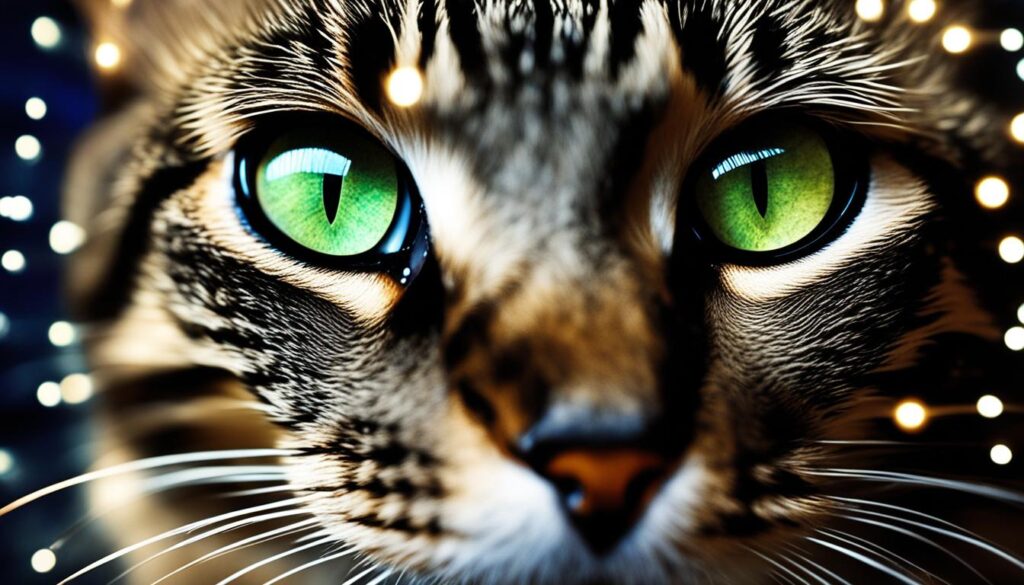
| Genetic Discoveries | Implications |
|---|---|
| Identification of genetic variants associated with feline longevity | Insights into potential therapeutic targets for age-related diseases in humans |
| Comparison of mutation rates and spectra between cats and humans | Understanding of evolutionary mechanisms underlying aging |
| Unlocking the genetic basis of feline life expectancy | Development of targeted interventions for prolonged healthy aging |
The Importance of Individualized Healthcare for Senior Cats
As we delve into the study of aging in cats and the genetic influences on feline aging, it becomes increasingly evident that individualized healthcare for senior cats is of paramount importance. Just like humans, cats experience an increased incidence of diseases as they age, and comorbidities become more common. By tailoring healthcare strategies to each cat’s unique genetic influences, we can provide optimal care and improve their overall quality of life.
Genetic research on cat aging has been instrumental in identifying genetic markers associated with longer lifespan and improved healthspan in senior cats. By understanding the genetic predispositions of healthy senior cats who live well into their late teens and twenties, we gain invaluable insights into age-related diseases and can implement preventive measures to delay or mitigate their onset.
Thanks to advancements in genetic research, at-home diagnostic tests are being developed to screen for genetic markers associated with longer lifespan and healthspan in cats. These tests enable early disease detection, allowing for timely intervention and treatment. Additionally, they assist pet parents in implementing senior care routines and preventive measures tailored to their cat’s individual needs.
The aim of individualized healthcare for senior cats is to not only extend their lifespan but also improve their overall well-being. By leveraging genetic research on cat aging, we can better understand the underlying mechanisms of feline aging and provide targeted healthcare strategies that support cats in living longer, healthier, and happier lives.
| Benefits of Individualized Healthcare for Senior Cats | Examples of Individualized Healthcare Strategies |
|---|---|
|
|
Basepaws’ Longevity Research and the Future of Feline Health
In the quest to unlock the secrets of feline longevity, Basepaws is at the forefront of genetic research. Through their groundbreaking partnership with Project 25, they are delving into the DNA of cats to identify genetic markers associated with longer lifespans and age-related chronic diseases. This research not only has the potential to enhance the health and well-being of our feline companions but also offers valuable insights that can inform human longevity studies.

By analyzing the genetic basis of feline life expectancy, Basepaws aims to develop an at-home test that can screen for these genetic markers. This test will revolutionize the way we care for our senior cats, enabling us to implement preventive measures and detect diseases at an early stage. By understanding the unique genetic factors that contribute to feline longevity, pet parents will have the knowledge and tools to optimize their cats’ health and extend their lifespan.
“The potential of genetics in improving feline health is immense. By leveraging the power of citizen science, we are not only advancing feline medicine but also creating opportunities for cross-species research,” says Dr. Anna Skaya, CEO of Basepaws.
With their innovative approach, Basepaws is spearheading a new era of diagnostic testing in feline health. Through their ongoing genetic research, they are paving the way for personalized healthcare strategies tailored to the individual needs of each cat. This means that senior cats can receive the specific care they require, improving their overall quality of life and enabling them to age gracefully.
The Benefits for Cats and Humans Alike
As cats share a significant amount of DNA similarity with humans, the genetic research conducted by Basepaws has far-reaching implications. By unraveling the genetic mysteries behind feline aging and longevity, scientists hope to gain insights into age-related diseases and potential therapeutics. The knowledge gained from studying cat genetics could hold the key to unlocking breakthroughs in human health, offering new possibilities for combating age-related diseases and improving overall well-being.
The Future Looks Promising
As Basepaws continues to forge ahead with their longevity research, the future of feline health looks promising. By combining cutting-edge science with citizen participation, Basepaws is harnessing the power of genetics to extend the lifespan and enhance the quality of life for our beloved feline companions. Through ongoing research and innovation, they are not only transforming the field of feline medicine but also paving the way for advancements in human health.
Conclusion
Phew! Now that we’ve delved into the fascinating world of feline genetics, it’s clear that there’s so much more to cat aging and longevity than meets the eye. Genetic factors play a significant role in the aging process, influencing disease susceptibility and overall lifespan in our beloved furry friends. The study of aging in cats is shedding light on the intricate mechanisms behind feline longevity, and the findings have the potential to revolutionize feline healthcare.
With ongoing research, like Basepaws’ groundbreaking partnership with Project 25, we’re inching closer to unraveling the mysteries of cat longevity. By understanding the genetic basis of feline life expectancy, we can develop targeted healthcare strategies and preventive measures that support cats in living longer, healthier, and happier lives. It’s a thrilling time for feline health!
So, next time you look into your cat’s curious eyes, consider the vibrant genetics that lie within. Remember, there’s much more to your feline companion than meets the eye. Through the study of genetics, we can unlock the secrets of feline aging, paving the way for a brighter and healthier future for our beloved cats. Let’s embark on this genetic adventure together, meow!
FAQ
How do genetic factors influence cat longevity?
Genetic factors contribute to the aging process and can influence disease susceptibility and overall lifespan in cats.
Is there a connection between cat breeds and longevity?
Yes, ongoing research is analyzing cat breeds to determine if certain breeds have genetic predispositions for longer lifespans.
How similar are cats and humans genetically?
Cats have approximately 90.2% of their DNA in common with humans, making them genetically closer to us than dogs.
Can genetic research on cat aging benefit human longevity studies?
Yes, by identifying genetic variants associated with feline longevity, researchers may also discover potential therapeutic targets for age-related diseases in humans.
How can genetic research improve healthcare for senior cats?
Understanding the genetic predispositions of healthy senior cats can help guide healthcare decisions, enable early disease detection, and improve overall quality of life.
What is Basepaws’ role in feline longevity research?
Basepaws is leading the next generation of diagnostic testing in feline health, with a focus on understanding the genetics of feline longevity through their partnership with Project 25.
How can pet parents contribute to feline longevity research?
By participating in the citizen science initiatives led by Basepaws, pet parents can contribute to groundbreaking research that can extend the lifespan and enhance the quality of life for cats.
What is the potential impact of genetic research on cat aging?
Genetic research has the potential to significantly impact the health and lifespan of cats, leading to targeted healthcare strategies and preventive measures that support longevity.

